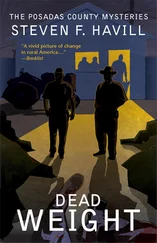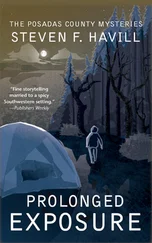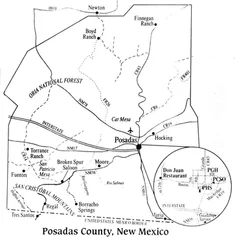Steven Levitt - Freakonomics
Здесь есть возможность читать онлайн «Steven Levitt - Freakonomics» весь текст электронной книги совершенно бесплатно (целиком полную версию без сокращений). В некоторых случаях можно слушать аудио, скачать через торрент в формате fb2 и присутствует краткое содержание. Год выпуска: 2005, ISBN: 2005, Издательство: HarperCollins Publishers Ltd., Жанр: Прочая научная литература, на английском языке. Описание произведения, (предисловие) а так же отзывы посетителей доступны на портале библиотеки ЛибКат.
- Название:Freakonomics
- Автор:
- Издательство:HarperCollins Publishers Ltd.
- Жанр:
- Год:2005
- ISBN:ISBN 0-06-083822-1
- Рейтинг книги:5 / 5. Голосов: 1
-
Избранное:Добавить в избранное
- Отзывы:
-
Ваша оценка:
- 100
- 1
- 2
- 3
- 4
- 5
Freakonomics: краткое содержание, описание и аннотация
Предлагаем к чтению аннотацию, описание, краткое содержание или предисловие (зависит от того, что написал сам автор книги «Freakonomics»). Если вы не нашли необходимую информацию о книге — напишите в комментариях, мы постараемся отыскать её.
Freakonomics — читать онлайн бесплатно полную книгу (весь текст) целиком
Ниже представлен текст книги, разбитый по страницам. Система сохранения места последней прочитанной страницы, позволяет с удобством читать онлайн бесплатно книгу «Freakonomics», без необходимости каждый раз заново искать на чём Вы остановились. Поставьте закладку, и сможете в любой момент перейти на страницу, на которой закончили чтение.
Интервал:
Закладка:
There are at least four reasons this is unlikely. One: those questions, coming near the end of the test, were harder than the earlier questions. Two: these were mainly subpar students to begin with, few of whom got six consecutive right answers elsewhere on the test, making it all the more unlikely they would get right the same six hard questions. Three: up to this point in the test, the fifteen students’ answers were virtually uncorrelated. Four: three of the students (numbers 1, 9, and 12) left at least one answer blank before the suspicious string and then ended the test with another string of blanks. This suggests that a long, unbroken string of blank answers was broken not by the student but by the teacher.
There is another oddity about the suspicious answer string. On nine of the fifteen tests, the six correct answers are preceded by another identical string, 3-a-1-2, which includes three of four incorrect answers. And on all fifteen tests, the six correct answers are followed by the same incorrect answer, a 4. Why on earth would a cheating teacher go to the trouble of erasing a student’s test sheet and then fill in the wrong answer?
Perhaps she is merely being strategic. In case she is caught and hauled into the principal’s office, she could point to the wrong answers as proof that she didn’t cheat. Or perhaps—and this is a less charitable but just as likely answer—she doesn’t know the right answers herself. (With standardized tests, the teacher is typically not given an answer key.) If this is the case, then we have a pretty good clue as to why her students are in need of inflated grades in the first place: they have a bad teacher.
Another indication of teacher cheating in classroom A is the class’s overall performance. As sixth graders who were taking the test in the eighth month of the academic year, these students needed to achieve an average score of 6.8 to be considered up to national standards. (Fifth graders taking the test in the eighth month of the year needed to score 5.8, seventh graders 7.8, and so on.) The students in classroom A averaged 5.8 on their sixth-grade tests, which is a full grade level below where they should be. So plainly these are poor students. A year earlier, however, these students did even worse, averaging just 4.1 on their fifth-grade tests. Instead of improving by one full point between fifth and sixth grade, as would be expected, they improved by 1.7 points, nearly two grades’ worth. But this miraculous improvement was short-lived. When these sixth-grade students reached seventh grade, they averaged 5.5—more than two grade levels below standard and even worse than they did in sixth grade. Consider the erratic year-to-year scores of three particular students from classroom A:
5 th GRADE SCORE / 6 thGRADE SCORE / 7 thGRADE SCORE
Student 3:3.0 / 6.5 / 5.1
Student 6:3.6 / 6.3 / 4.9
Student 14:3.8 / 7.1 / 5.6
The three-year scores from classroom B, meanwhile, are also poor but at least indicate an honest effort: 4.2, 5.1, and 6.0. So an entire roomful of children in classroom A suddenly got very smart one year and very dim the next, or more likely, their sixth-grade teacher worked some magic with a no. 2 pencil.
There are two noteworthy points to be made about the children in classroom A, tangential to the cheating itself. The first is that they are obviously in terrible academic shape, which makes them the very children whom high-stakes testing is promoted as helping the most. The second point is that these students would be in for a terrible shock once they reached the seventh grade. All they knew was that they had been successfully promoted due to their test scores. (No child left behind, indeed.) They weren’t the ones who artificially jacked up their scores; they probably expected to do great in the seventh grade—and then they failed miserably. This may be the cruelest twist yet in high-stakes testing. A cheating teacher may tell herself that she is helping her students, but the fact is that she would appear far more concerned with helping herself.
An analysis of the entire Chicago data reveals evidence of teacher cheating in more than two hundred classrooms per year, roughly 5 percent of the total. This is a conservative estimate, since the algorithm was able to identify only the most egregious form of cheating—in which teachers systematically changed students’ answers—and not the many subtler ways a teacher might cheat. In a recent study among North Carolina schoolteachers, some 35 percent of the respondents said they had witnessed their colleagues cheating in some fashion, whether by giving students extra time, suggesting answers, or manually changing students’ answers.
What are the characteristics of a cheating teacher? The Chicago data show that male and female teachers are about equally prone to cheating. A cheating teacher tends to be younger and less qualified than average. She is also more likely to cheat after her incentives change. Because the Chicago data ran from 1993 to 2000, it bracketed the introduction of high-stakes testing in 1996. Sure enough, there was a pronounced spike in cheating in 1996. Nor was the cheating random. It was the teachers in the lowest-scoring classrooms who were most likely to cheat. It should also be noted that the $25,000 bonus for California teachers was eventually revoked, in part because of suspicions that too much of the money was going to cheaters.
Not every result of the Chicago cheating analysis was so dour. In addition to detecting cheaters, the algorithm could also identify the best teachers in the school system. A good teacher’s impact was nearly as distinctive as a cheater’s. Instead of getting random answers correct, her students would show real improvement on the easier types of questions they had previously missed, an indication of actual learning. And a good teacher’s students carried over all their gains into the next grade.
Most academic analyses of this sort tend to languish, unread, on a dusty library shelf. But in early 2002, the new CEO of the Chicago Public Schools, Arne Duncan, contacted the study’s authors. He didn’t want to protest or hush up their findings. Rather, he wanted to make sure that the teachers identified by the algorithm as cheaters were truly cheating—and then do something about it.
Duncan was an unlikely candidate to hold such a powerful job. He was only thirty-six when appointed, a onetime academic all-American at Harvard who later played pro basketball in Australia. He had spent just three years with the CPS—and never in a job important enough to have his own secretary—before becoming its CEO. It didn’t hurt that Duncan had grown up in Chicago. His father taught psychology at the University of Chicago; his mother ran an after-school program for forty years, without pay, in a poor neighborhood. When Duncan was a boy, his afterschool playmates were the under-privileged kids his mother cared for. So when he took over the public schools, his allegiance lay more with schoolchildren and their families than with teachers and their union.
The best way to get rid of cheating teachers, Duncan had decided, was to readminister the standardized exam. He only had the resources to retest 120 classrooms, however, so he asked the creators of the cheating algorithm to help choose which classrooms to test.
How could those 120 retests be used most effectively? It might have seemed sensible to retest only the classrooms that likely had a cheating teacher. But even if their retest scores were lower, the teachers could argue that the students did worse merely because they were told that the scores wouldn’t count in their official record—which, in fact, all retested students would be told. To make the retest results convincing, some non-cheaters were needed as a control group. The best control group? The classrooms shown by the algorithm to have the best teachers, in which big gains were thought to have been legitimately attained. If those classrooms held their gains while the classrooms with a suspected cheater lost ground, the cheating teachers could hardly argue that their students did worse only because the scores wouldn’t count.
Читать дальшеИнтервал:
Закладка:
Похожие книги на «Freakonomics»
Представляем Вашему вниманию похожие книги на «Freakonomics» списком для выбора. Мы отобрали схожую по названию и смыслу литературу в надежде предоставить читателям больше вариантов отыскать новые, интересные, ещё непрочитанные произведения.
Обсуждение, отзывы о книге «Freakonomics» и просто собственные мнения читателей. Оставьте ваши комментарии, напишите, что Вы думаете о произведении, его смысле или главных героях. Укажите что конкретно понравилось, а что нет, и почему Вы так считаете.











